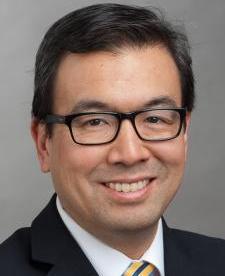In an interview with Faith & Leadership (Duke Divinity), the new executive director of the Association of Theological Schools (ATS) discusses the challenges and opportunities of a changing landscape in the field of theological education.
The ATS is the accrediting body for graduate theological schools and seminaries in the US and Canada. The Revd Dr Frank Yamada became its executive director earlier this month. In the interview, he finds himself surprisingly hopeful about the future of theological education and the church.
I’m pretty enthusiastic when it comes to theological education — and pretty hopeful. I mention that because that’s a surprise for me.
I pay a lot of attention to my news feed and social media, and I’ve almost had to take a break from it sometimes, because it feels like bad news.
It’s very cynical. It’s not hopeful. In the Christian language, we would call this the specter of death.
But one thing that continually surprises me is that in the face of all this, there is hope.
I understand that these aren’t easy times for theological education or for the church. When one sees the enormously daunting challenges that schools are facing, one wouldn’t always expect to see so much hope.
Yamada credits this to the resiliency of the church and its faith.
The church has always adapted to its times. One of the things that I see a lot in our institutions is that in these challenging times, they get very creative and they’re very resilient.
Theological institutions figure out ways to endure and stay committed to their vision — and in fact, sometimes are even more strongly committed to their vision in the face of these challenges.
If we think about it from a Christian faith perspective, this is also a characteristic of our faith.
The interview addresses new ways of structuring seminary education, and how to hold a standard of excellence in tension with the flexibility demanded by new ways of learning, as well as diversity and inclusivity in the future of church leadership.
Yamada is an ordained minister of the Presbyterian Church (USA) with a background covering various faith traditions, including time spent teaching at Seabury-Western Theological Seminary, which later joined with Bexley Episcopal Seminary to form Bexley Seabury Seminary in Chicago.

